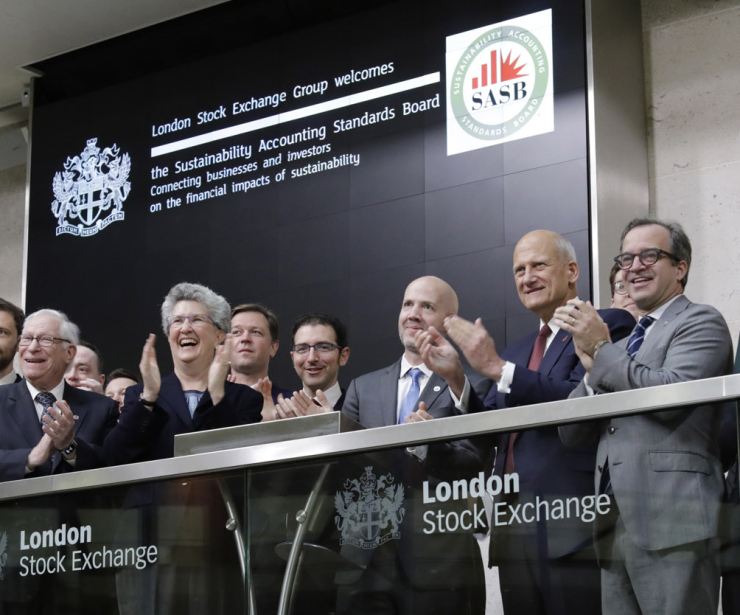The Sustainability Accounting Standards Board published its long-awaited set of industry-specific sustainability accounting standards Wednesday at a ceremony at the London Stock Exchange.
SASB has been working to develop the standards for years with the help of industry experts and experienced standard-setters and regulators who used to work at the Financial Accounting Standards Board and the Securities and Exchange Commission.
Publishing the standards provides the opportunity for businesses to better identify and communicate how they are addressing sustainability issues. Covering 77 industries, the standards were approved on Oct. 16, 2018, by a vote of SASB’s Standards Board after six years of research and extensive market consultation, including engagement with many prominent investors and businesses in various sectors.

“What makes SASB standards unique in the marketplace is their focus on industry specificity and financial materiality, universal concepts that are important for investors and businesses around the world,” said SASB Chair Jeffrey Hales in a statement. “This is an important milestone for global capital markets. Companies and investors around the world now have codified, market-based standards for measuring, managing, and reporting on sustainability factors that drive value and affect financial performance.”
A number of prominent companies, including GM, Merck, Nike, Kellogg’s, JetBlue, CBRE, Diageo, Groupe PSA, Schneider Electric, Host Hotels, and NRG Energy, have already begun using the SASB standards. SASB’s Investor Advisory Group and the SASB Alliance now include 56 members from North America, the U.K., Europe, and Australia with total assets under management valued at $29 trillion.
SASB standards can also be used alongside other sustainability frameworks and align with recommendations from the Task Force on Climate-related Financial Disclosures and the Global Reporting Initiative.
“SASB’s newly codified standards will help companies around the world focus on the sustainability issues that matter to financial performance and to better communicate their performance on these issues to global investors in a decision-useful and comparable way,” said SASB Foundation board member Robert Herz, who formerly chaired the Financial Accounting Standards Board.
Now that the standards have been published, SASB plans to follow a regular, multi-year cycle of updating the standards to ensure they stay and respond to changing market needs. The board’s ongoing due process will continue to involve internal research, external outreach, public comment and transparent oversight. SASB also intends to further engage markets through its Standards Advisory Group initiative, which includes standing committees of volunteer industry experts from prominent companies, financial institutions and third parties who will offer feedback on standards development, maintenance, implementation and use.
To download any of the 77 industry-specific standards, visit